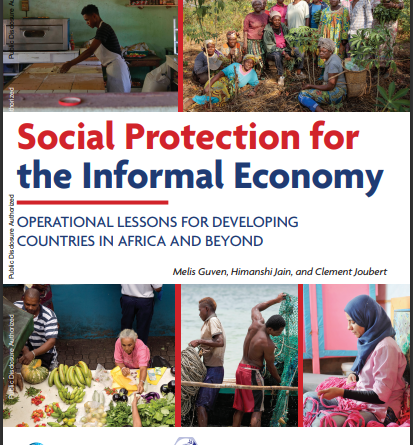Social Protection for the Informal Economy. Operational Lessons for Developing Countries in Africa and Beyond
By Melis Guven, Himanshi Jain, & Clement Joubert
The informal economy in Africa is large and diverse, and it is the main source of employment in the
region. It is projected to grow and create more jobs.
The informal economy is well established in the region, but it also faces a host of development challenges. It is characterized by low human capital and productivity compared with the formal economy and is typically associated with limited access to resources such as electricity, finance, land, and public services.
People who work in the informal economy are usually more susceptible to short-term shocks and the more catastrophic consequences of idiosyncratic shocks (acute short-term crises, such as illness) and covariate shocks (chronic or widespread shocks affecting entire communities). These vulnerabilities are exacerbated because these people ordinarily have limited avenues to formal financial institutions or risk mitigation instruments. Women are more likely to work in the informal economy in Africa and are therefore also more likely to experience precarious work environments.
Get the book here
493 views










